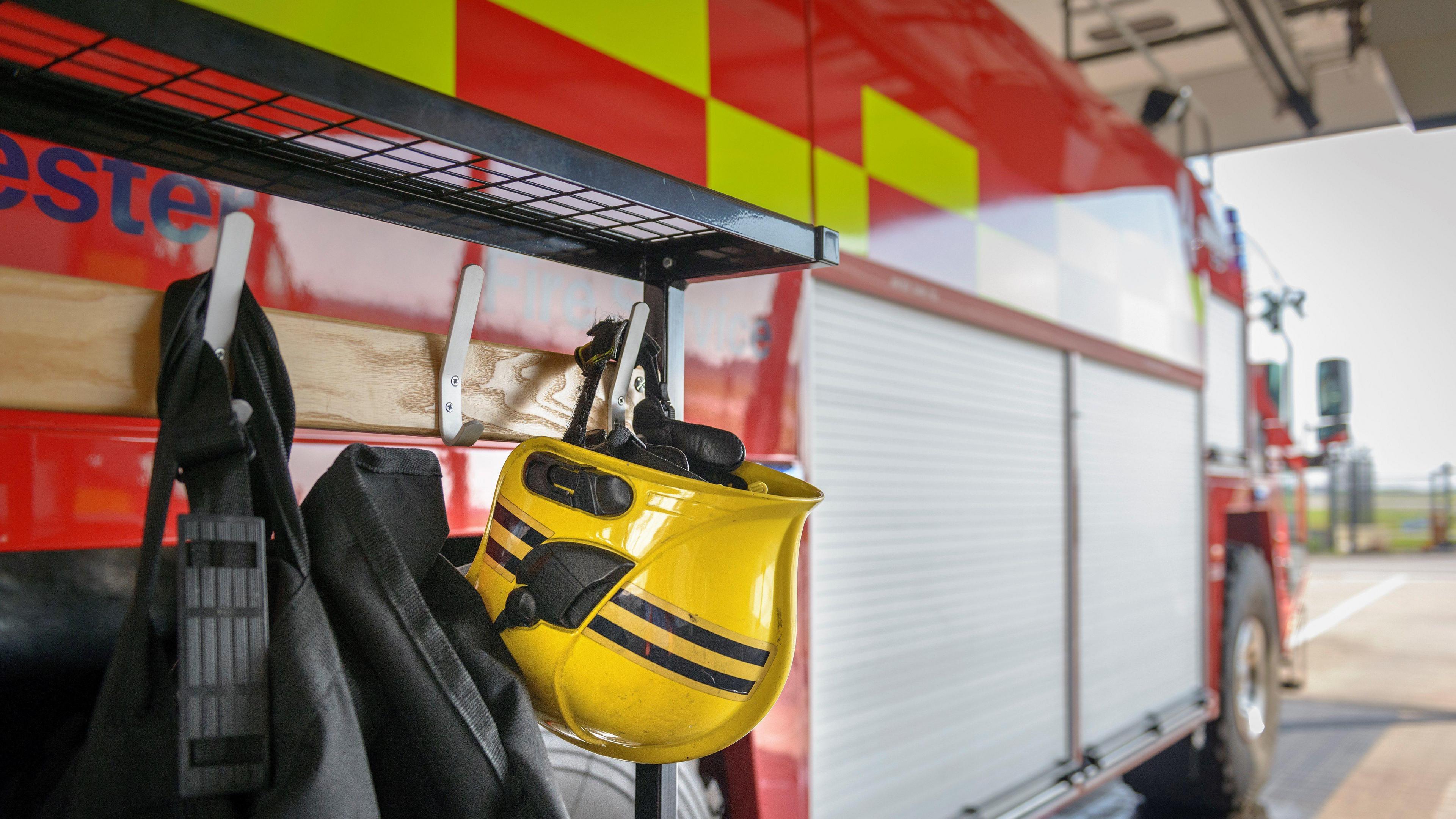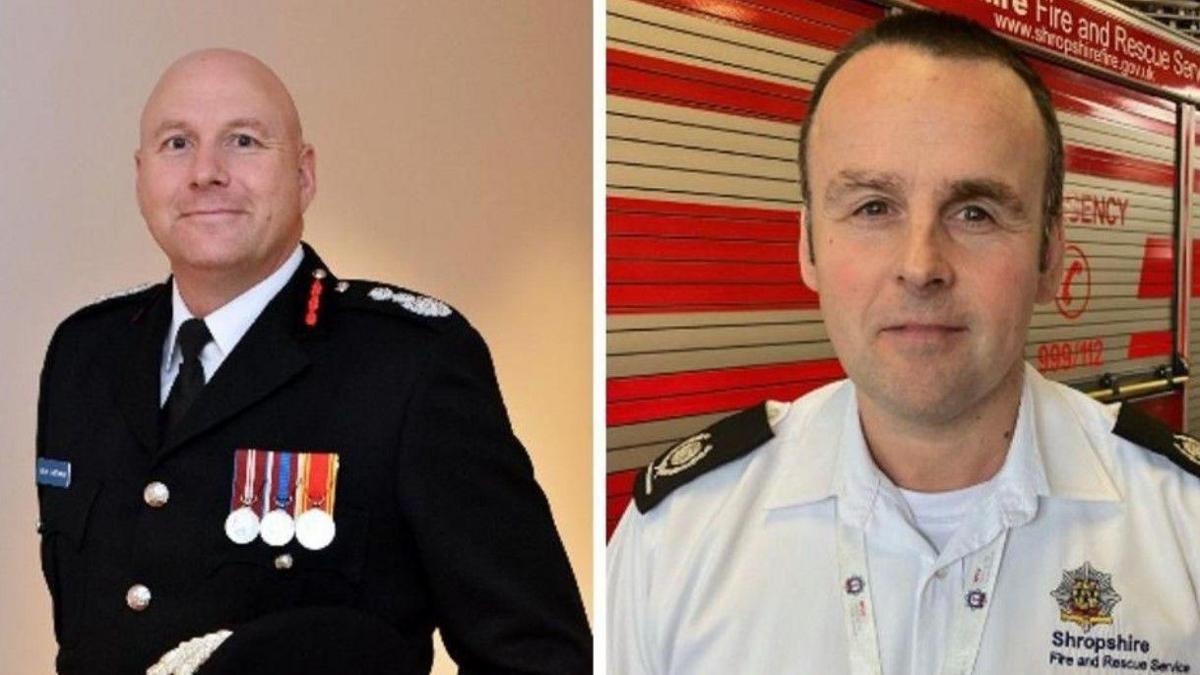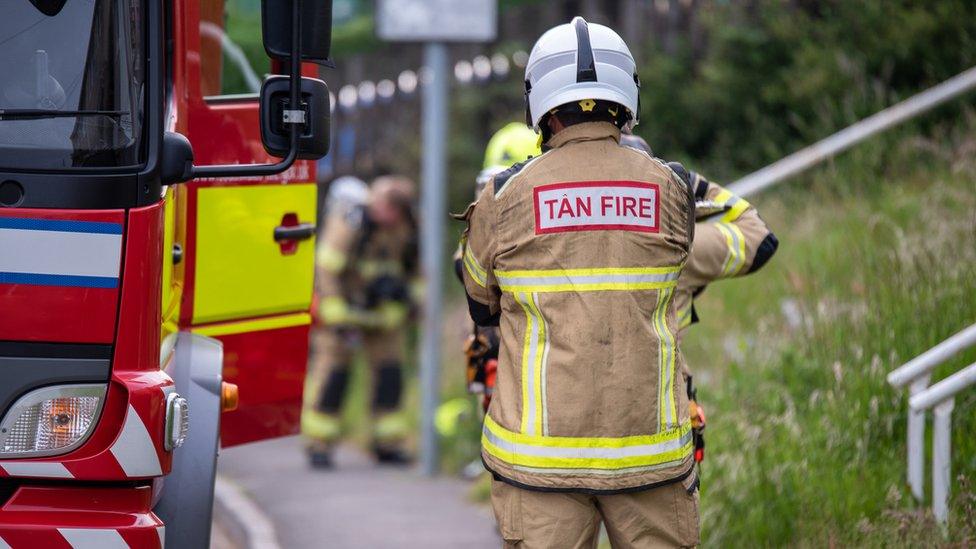Probe exposes racism and harassment at fire services

Dorset and Wiltshire Fire and Rescue was one of ten services surveyed as part of the review
- Published
Sexual harassment and homophobic language are still prevalent issues at England's fire services, a new report concluded.
The inspectorate's review looked at ten sample fire and rescue services from across the country, including Dorset and Wiltshire.
One in three staff surveyed reported witnessing sexist, racist and homophobic language at work. Incidents of sexual harassment were also raised.
Report author, His Majesty's Inspector of Fire and Rescue Services Roy Wilsher, said leaders have committed to "change" but this "change is not taking place fast enough".
Ten fire and rescue services were selected to be part of a representative sample and inspected between October 2023 and January 2024.
These included Cornwall, Dorset and Wiltshire, Greater Manchester, Humberside, Kent, Lincolnshire, Northamptonshire, Staffordshire, Tyne and Wear, and West Midlands.
Data from a staff survey and analysis of disciplinary and grievance cases between April 2022 and March 2023 raised by all 44 services in England was also used.
Out of 4,422 staff responding to the survey, 114 reported experiencing sexual harassment in their service in the last 12 months, and 235 witnessed sexual harassment of a colleague over the same period.
This included inappropriate sexual messaging, comments on appearance and unwanted touching.
"Respondents also told us about the covering up of sexual harassment, and abuse and intimidation of those who report it, so the prevalence could be much higher," the report stated.

HMI Roy Wilsher has served in the fire service sector for over 40 years
The review concluded that the fire service's culture is showing some signs of improvement but "too much unacceptable behaviour had remained".
Issues with staff feeling uncomfortable about raising concerns were also highlighted.
Mr Wilsher told the BBC: "We've had examples of people being told that their careers will be shortened or they won't get on if they report matters and some other incidents of senior officers stopping things happening."
He added that "many staff don't have confidence in the process" and there is a lack of training for people who carry out investigations.
"There's a lack of learning as well, looking at cases that have gone before, looking at trends... so you could stop things happening in the future," he added.
Mr Wilsher said: "Watches [firefighters working on shift] can be very tight-knit and great places to work. But also watches can be places where you're either in the 'in-crowd' or you're not.
"You can have dominant personalities who've been on the same watch for a long time and sometimes the culture is toxic."
'Firefighters need to be able to trust each other'
In response to these challenges, the inspectorate has made 15 recommendations.
These include the need for each service to have access to a professional standards function to support "fair and transparent misconduct investigations", and to train staff involved in conducting these investigations.
"Firefighters carry out a dangerous role. they need to be able to trust their colleagues, they need trust in the system.
"If you have a well, engaged, happy workforce that trust each other, you will actually provide a better service to the communities you serve," Mr Wilsher said.
He added that fire and rescue services are making slow progress towards making cultural change.
"We have seen a real commitment from leaders to change things. Most of the services we been into, there are strategies and action plans.
"Some of the people we interviewed at firefighter level said that the behaviour has improved and these misconduct matters are improving. But change isn't fast enough," he added.
Get in touch
Tell us which stories we should cover in Wiltshire
Follow BBC Wiltshire on Facebook, external, X, external and Instagram, external. Send your story ideas to us on email or via WhatsApp on 0800 313 4630.
Related topics
- Published9 April 2024

- Published25 July 2024

- Published6 February 2024
